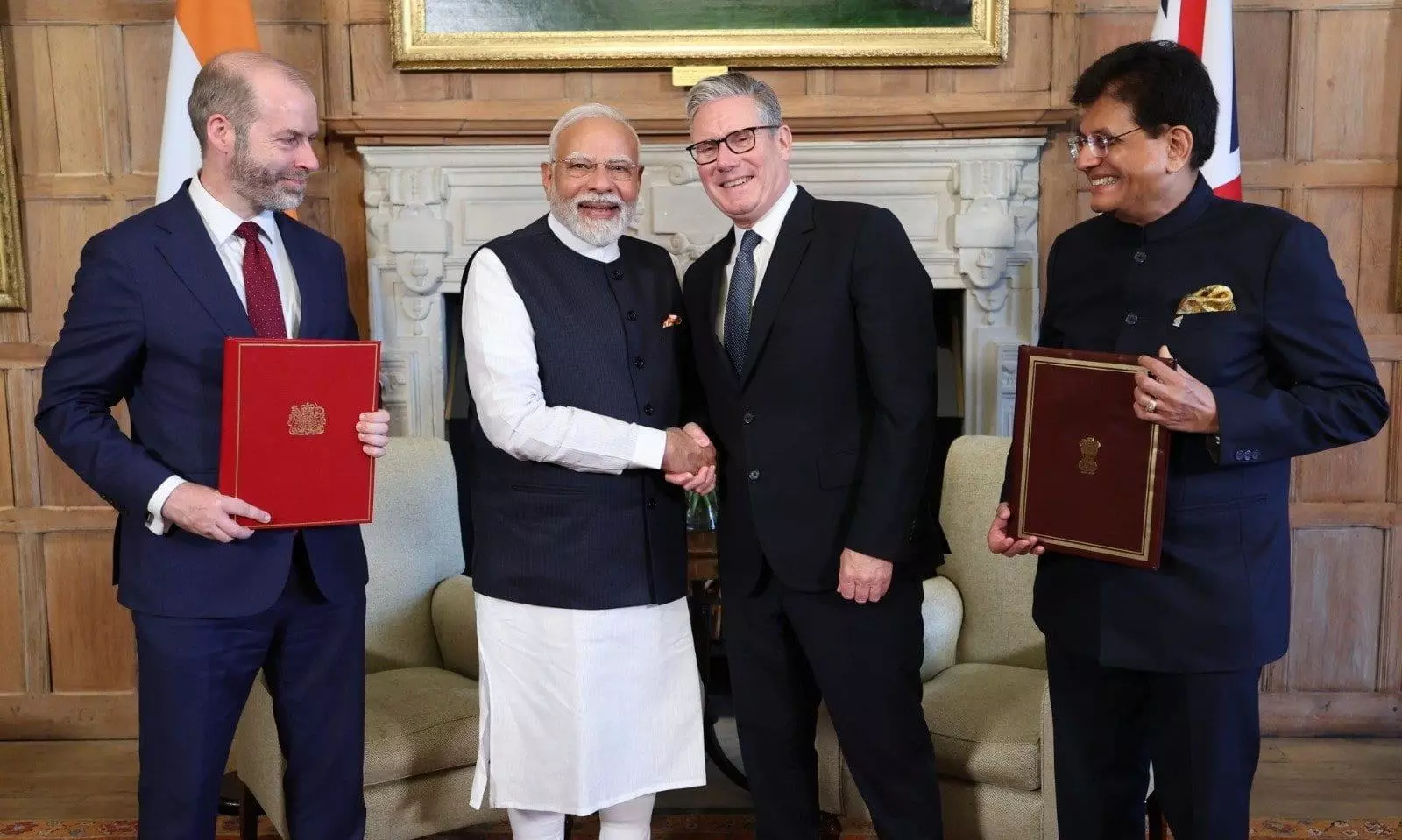India, UK sign CETA to boost exports and economic cooperation
Enabling zero-duty access for 99% of Indian exports, the deal is set to boost trade volumes and drive demand for logistics and supply chain services.

India and the United Kingdom have signed the Comprehensive Economic and Trade Agreement (CETA), marking a significant development in bilateral trade relations. The agreement grants zero-duty access on 99% of tariff lines, covering nearly 100% of the trade value between the two countries. This is expected to benefit labour-intensive Indian sectors such as textiles, leather, footwear, gems & jewellery, marine products, toys, and sports goods. Sectors like engineering goods, auto components, and organic chemicals are also included.
According to an official release by the Indian government, bilateral trade between India and the UK currently stands at USD 56 billion, with a target to double this figure by 2030.
The agreement was signed and exchanged during the official visit of Indian Prime Minister Narendra Modi to the United Kingdom on 24 July 2025. The UK Prime Minister Keir Starmer was present during the ceremony.
The signing was conducted by India’s Minister of Commerce and Industry, Piyush Goyal, and the UK’s Secretary of State for Business and Trade, Jonathan Reynolds. Also present were India’s Minister of External Affairs Dr. S. Jaishankar and the UK’s Chancellor of the Exchequer Rachel Reeves.
CETA also includes wide-ranging services sector commitments by the UK, covering IT and IT-enabled services, financial and legal services, business consulting, education, telecom, architecture and engineering.
The agreement introduces simplified and liberalised entry procedures for Indian professionals, including contractual service suppliers, business visitors, intra-corporate transferees, and independent professionals such as chefs, yoga instructors and musicians.
In the official release, the Minister for Commerce and Industry of India, Piyush Goyal, stated:
“This CETA marks a milestone in the trade relations between two major economies, setting an ambitious and balanced framework. It unlocks tariff-free access on 99% of Indian exports to the UK, covering nearly 100% of trade value- including labour-intensive sectors advancing the ‘Make in India’ initiative and setting the stage for bilateral trade to double by 2030. It includes ambitious commitments in goods and services, covering various sectors, while enhancing mobility for Indian professionals by simplifying access for contractual service providers, business visitors, and independent professionals. The innovative Double Contribution Convention will exempt Indian workers and their employers from UK social security contributions for three years, boosting competitiveness and earnings. This FTA will serve as a catalyst for inclusive growth, benefiting farmers, artisans, workers, MSMEs, startups, and innovators while safeguarding India’s core interests and accelerating our journey towards becoming a global economic powerhouse.”
The agreement includes provisions aimed at making trade more inclusive. The official release states that women and youth entrepreneurs, farmers, fishermen, startups, and MSMEs are expected to gain improved access to global value chains. Moreover, CETA also outlines commitments on promoting sustainable trade practices, encouraging innovation, and reducing non-tariff barriers.
The agreement will now undergo the required legislative and administrative processes in both countries. Implementation committees are expected to be formed to ensure smooth execution and address any emerging trade issues.
CETA is India’s most comprehensive free trade agreement with a major developed economy and follows the conclusion of formal negotiations announced on 6 May 2025. The agreement is expected to boost cross-border trade volumes, which will increase demand for integrated logistics, warehousing, and multimodal transport services. Freight forwarders, customs brokers, and supply chain solution providers are likely to see expanded opportunities, especially in managing time-sensitive and high-value shipments across sectors.



